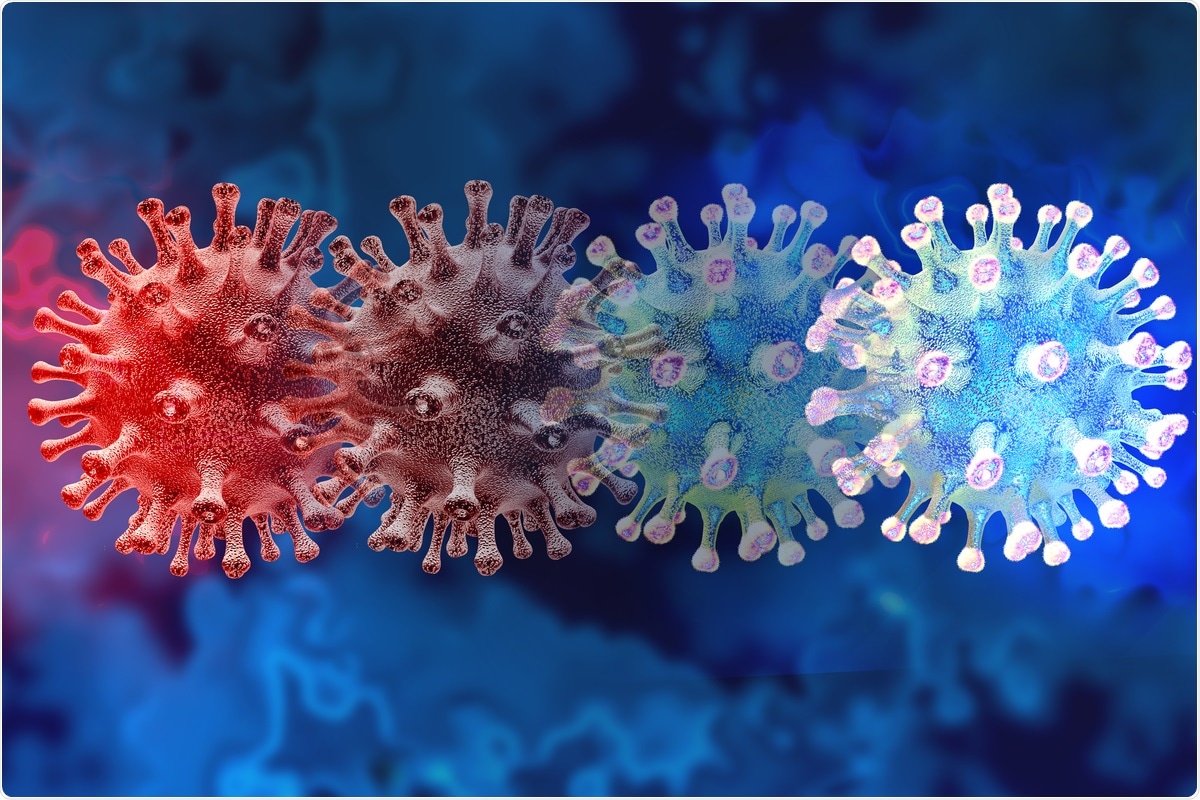A new study by researchers at the University of California Los Angeles (UCLA) reports that the best protection against new infections or reinfections with the severe acute respiratory syndrome coronavirus 2 (SARS-CoV-2), the causative agent of the coronavirus disease 2019 (COVID-19) pandemic, may be obtained by a combination of vaccine-elicited and infection-induced antibodies to the virus.
 Study: Previous Infection Combined with Vaccination Produces Neutralizing Antibodies With Potency Against SARS-CoV-2 Variants. Image Credit: Lightspring/ Shutterstock
Study: Previous Infection Combined with Vaccination Produces Neutralizing Antibodies With Potency Against SARS-CoV-2 Variants. Image Credit: Lightspring/ Shutterstock

 This news article was a review of a preliminary scientific report that had not undergone peer-review at the time of publication. Since its initial publication, the scientific report has now been peer reviewed and accepted for publication in a Scientific Journal. Links to the preliminary and peer-reviewed reports are available in the Sources section at the bottom of this article. View Sources
This news article was a review of a preliminary scientific report that had not undergone peer-review at the time of publication. Since its initial publication, the scientific report has now been peer reviewed and accepted for publication in a Scientific Journal. Links to the preliminary and peer-reviewed reports are available in the Sources section at the bottom of this article. View Sources
A preprint version of the study is available on the medRxiv* server, while the article undergoes peer review.
Background
As the virus continues to spread at high frequencies worldwide, several mutations have occurred, mostly in the SARS-CoV-2 spike protein's receptor-binding domain (RBD). Mutations in this domain affect the virus' ability to engage with the host cell receptor, enter the cell, and establish infection. As the spike protein is the immunodominant antigen, a mutation of this kind can also allow the virus to evade host immune responses and avoid recognition and neutralization by antibodies elicited to a different variant of the spike protein.
The outcomes of such mutations include the emergence of variants such as the beta and delta variants that challenge the concept of post-viral immunity by causing breakthrough infections and vaccine failures. The reason for such challenges could be that antibodies elicited by infections from early variants or by vaccines containing the spike protein of the original Wuhan variant cannot neutralize the spike proteins of the newer variants. Ultimately, this could lead to a significant reduction in vaccine efficacy.
How was the study done?
The researchers tested antibodies from convalescent sera obtained from patients who had acquired the infection early in the course of the pandemic, that is, before April 2020, when only the Wuhan variant was present at high frequency. All of these had a mild infection. They were also tested following vaccination with the Pfizer or Moderna vaccines. The investigators also tested sera from vaccine recipients who had no history of prior infection.
They looked at seven common combinations of five mutations in the RBD, focusing on the neutralization by vaccine-elicited antibodies, antibodies formed after natural infection, and antibodies elicited by infection followed by vaccination.
The aim was to understand if repeated stimulation of the host by the antigen would enhance the potency of antibody-mediated neutralization of spike mutants.
What were the findings?
The scientists found that some spike mutations resulted in a marked reduction in the neutralizing ability of the protein by preventing recognition by antibodies induced by either past infection or vaccination.
In vaccinated but uninfected individuals, the antibodies formed showed lower neutralization capacity towards the spike variants than the vaccine spike antigen. The greatest reduction was with the mutation combinations of K417N/E486K/N501Y and K417T/E486K/N501Y, found in the beta and gamma variants, respectively.
With a history of mild infection, prevaccination samples of convalescent sera showed the same pattern of reduced potency of neutralization with these combinations of mutations.
When the same patients were later vaccinated (about a year after their infections) and new serum samples tested afterward, they were found to possess antibodies with equivalent ability to neutralize the spike mutants and the ancestral spike variant. The rise in potency was tied closely to the baseline titers in all subjects and for all variants. This suggests that "the combination of infection and vaccination drove the production of enhanced antibodies to reach a maximal level of potency."
What are the implications?
The findings show that when vaccination is used as a booster to enhance the antibody response, breakthrough infections and reinfections are largely averted, unlike the scenario when infections from an early phase of the pandemic are relied upon for immunity.
Conversely, antibodies raised by infection with the early variant of the virus or by first-generation vaccines lose neutralizing potency against the spike variants currently in circulation. When vaccination was performed, the already maximal response to the original spike variant was supplemented by a raised potency against the newer spike variants to their maximal levels.
The research group concluded that these findings indicate that SARS-CoV-2 spike variant resistance can be overcome through continued antigenic exposure by vaccination. The evidence presented suggests that a booster dose of any effective vaccines in use may enhance the efficacy against the current variants and the infection-plus-vaccination combination. Further research is necessary to confirm this hypothesis.

 This news article was a review of a preliminary scientific report that had not undergone peer-review at the time of publication. Since its initial publication, the scientific report has now been peer reviewed and accepted for publication in a Scientific Journal. Links to the preliminary and peer-reviewed reports are available in the Sources section at the bottom of this article. View Sources
This news article was a review of a preliminary scientific report that had not undergone peer-review at the time of publication. Since its initial publication, the scientific report has now been peer reviewed and accepted for publication in a Scientific Journal. Links to the preliminary and peer-reviewed reports are available in the Sources section at the bottom of this article. View Sources